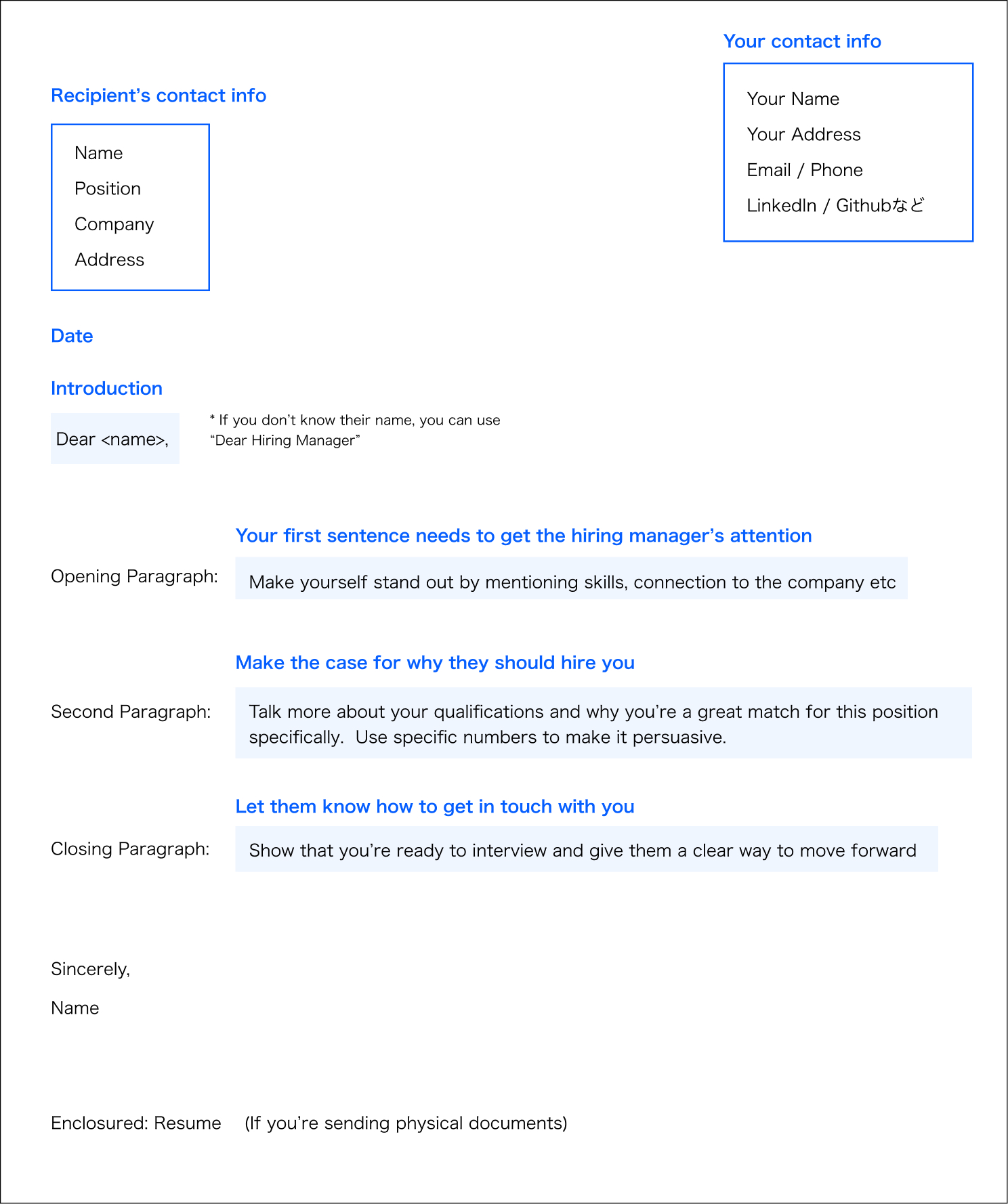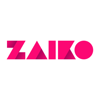Updated July 21, 2022
How to Write an Effective Cover Letter (With Examples)
When you send a resume to an employer, you'd better include a cover letter.
Even if they claim it's optional, it's a great chance to pitch yourself to the company. Don't pass it up. Your cover letter is your first impression to the hiring manager so a good one can vastly improve your chances of getting an interview.
In this post I'll outline how to write an effective cover letter that will make companies want to interview you. I'll talk about the following topics:
- What do I write in a cover letter?
- Basic cover letter format
- Writing tips for cover letters
- Selecting keywords to get through automated systems
- Example cover letters
What do I write in a cover letter?
Resumes are a good way to show the facts about your career so far. It should summarize what you've done: your schooling, work experience and relevant skills. But they can't tell the whole story.
A cover letter is your chance to show your personality and explain exactly why you're a match for this job. It allows you to speak directly to the hiring manager and make your case in more detail.
Most recruiters screen tons of candidates every day, so they may only look at your cover letter for a few seconds. They'll glance to determine one thing: Is it worth looking at this person's resume?
That's why your cover letter needs to be short and concise. And it needs to get to the point as quickly as possible. Failing to get the reader's interest at the beginning can lose you the job, so you have to focus on the stuff that's important.
Here's what you should include:
- Your motivation for applying to the job
- Why you're a good match for the job
- Emphasis on your 2-3 most outstanding skills (make sure you quantify them)
- Supplemental info to explain concerns the reader may have (e.g. employment gaps, relocation)
Basic cover letter format
First of all, use a document format such as PDF or Word (.docx). Or if you're applying via email, simply copy your cover letter into the body of the email.
As for length, it shouldn't take up more than a page in the format of a business document. No one's going to read multiple pages of text.
When sending by email, you should include your name and the title of the job you're applying for in the email subject. This will help recruiters keep track of you. For example:
Eric Turner, Engineering Manager
And make sure to use simple text to avoid file corruption and formatting issues. Skip the emojis, colors and other embellishments.
In the below sample, we've included official guidelines for the recipient's physical address etc. just in case, but you should skip this if you're sending it electronically.

Writing tips for cover letters
Write personal cover letters for each company
Every company has unique requirements, so you should always personalize your cover letter for each company. In fact, I'd recommend personalizing it for each position (even for the same company).
Backup your skills and qualifications with numbers
When describing your results, be as specific as possible. This will give your words greater impact.
This will also make it easier for AI-powered applicant tracking systems to parse.
Here are a few examples of how you can quantify your achievements:
Data Analyst: I performed an analysis that led to a 20% greater efficiency in our _____ process.
Software Engineer: My implementation of _____ directly led to a 50% increase year-over-year in workflow improvements.
Management: I managed a team of _____ engineers and oversaw their performance from a technical perspective, leading to a 98% positive Performance review from my team.
Show that you're a cultural fit
Companies aren't just looking for those with strong skills. They also place a lot of importance on cultural fit. They want people who can commit to the company for the long term, and that's often dictated by cultural fit. So you need to understand the company's values and show that you share them.
I recommend researching each company's culture beforehand. If you happen to be in Japan, we list culture and value info on our company pages. Otherwise, you can usually get a good idea of their values by reading a company's blog and social media posts.
And whatever you do, don't criticize yourself!
I wouldn't have thought I'd need to say this, but recently I've been looking at a lot of cover letters. And a shockingly high number of people make the same basic mistake: They begin the letter by belittling themselves.
"I still don't have much experience, but..."
"I'm just now graduating from university, but..."
"I didn't study _____ directly, but..."
A cover letter is your chance to tell a company why they should hire you. Don't waste precious time by telling them why they shouldn’t! You need to stay positive. You might think "clearing the air" about some missing qualification makes you look honest. It doesn't. It just makes you look insecure.
It's fine to be insecure. Especially if you know you're not entirely qualified for the position. But you need to have a positive mindset and avoid allowing this insecurity to show through in your cover letter. You have the right to apply for this position, so put your best foot forward!
You only get a very small number of words to convince a hiring manager to let you move to the next step. You need to focus on convincing them to give you a shot. At the end of the day, the person reading your letter is a human, and they're choosing a new coworker. It's not all about objective qualifications. You can improve your chances by presenting yourself as a confident person that others will want to work with.
Keep text clear and simple. Avoid flowery language and embellishments.
- Avoid pictures, charts, graphs, emojis, logos and symbols.
- Use boring, easy-to-read fonts like Arial or Times New Roman.
- Keep the body to 3-4 paragraphs max (one page).
- For companies that use an ATS (Applicant Tracking System), make the text searchable (i.e. it may be better to use a Word doc rather than PDF). Although the accuracy of PDF scanning has improved, the AI can only reliably scan info in text format.
Selecting keywords to get through automated systems
Recently, more and more companies are using Applicant Tracking Systems (ATS). Especially in the US, more and more companies are using AI-based systems for HR operations including AI-powered resume screening. These systems automatically reject around 75% of applicants.
Although Japan still lags behind the U.S. in adopting AI into the hiring process, major companies are beginning to use AI-based screening. For example, SoftBank started using IBM's Watson for screening starting in 2017.
So, it’s important to think about how you can pass a company’s ATS and get your resume seen by an actual human.
ATS systems' screening systems scan the skills and experience from a candidate's cover letter and resume. Then they extract keywords and phrases that match the job description, and rank candidates based on the amount of overlap. So when writing a cover letter (as well as a resume), you should include keywords that match the job description.
Let's look at some more tips on how to get through ATS screening.
Use "standard" or official keywords
Don't use abbreviations when describing skills, and qualifications, because it may not be recognized by the ATS. These systems have become relatively smart, but it's better not to risk it.
For example, if you have a master's degree in business administration, you might use one of the following keywords:
(1) MBA
(2) M.B.A.
(3) Master of Business Administration
(4) Masters of Business Administration
(5) Masters of Business Administration (M.B.A.)
If you check the job description and you're already calling it the same thing they are, keep it as is. If this isn't mentioned in the job description, it would be safe to choose (5) since it covers your bases.
Select words that match the job's requirements
The AI scans your cover letter and resume and filters based on skills, background, location, language level, and more. Thus, it’s important to think carefully about what keywords are important to get through the screening process. Think about what companies want to solve by hiring for this position and use generic words so the AI can recognize them.
There is one caveat here: don't make up qualifications. It might be tempting to "keyword stuff" your cover letter or resume to match as many keywords as possible, but don't do this. It may get detected, and even if you get through to an interview because of it, you'll be rejected in the first round when you can't back up your claimed skills.
Cover Letter Sample

Even if there is AI screening, your resume will be seen by a human recruiter eventually. If there are two candidates with equal qualifications, they'll choose the one who's more enthusiastic and shares the company's values
Tip: Avoid clichés
When you screen candidates every day, overused clichés become boring. To hook the recruiter's attention, focus on your recent accomplishments. Show passion and prove you can get the job done. If you can inspire the recruiter using your own words, you'll be a step ahead of the other candidates.
Boring: I’m writing to apply for a Backend development position. While I was looking for potential new opportunities in Japan, I came across your job. I am interested in applying for your job...
Stand Out: I was excited to come across the job opening for a software engineer at Sample K.K. Not only have I been planning to move to Tokyo, but I’ve been a big fan of your mobile payment app for a long time. With 5+ years of professional experience in product development using Go, and experience in both SQL and NoSQL, I believe my technical skills would be a perfect addition to your team.
Stand Out: I’m excited to be applying for the position because I saw that you are dedicated to building _____ products. I’ve been passionate about this space for years, which is why I’ve contributed _____ at my current role. I have no doubt that I can utilize this experience to achieve similar results as a developer at your company.
Stand Out: I’m excited to be applying for the open Dev Ops role at _____ Company. I recently read an article about your _____. I’d be honored to become part of your team that has a clear and strong mission, and help push it forward.
Stand Out: I was thrilled to see your posting for the position of Data Analyst. I am positive I can help with XXX's upcoming challenges. I have experience with leading...
Get Job Alerts
Sign up for our newsletter to get hand-picked tech jobs in Japan – straight to your inbox.








